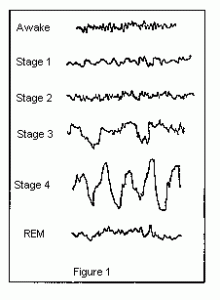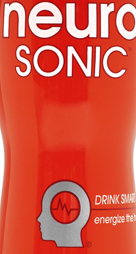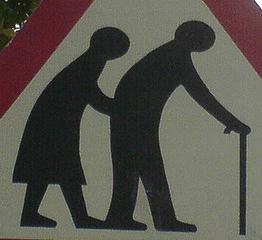New Evidence That Green Tea Boosts Brain Health
 There have been claims over the years that green tea can improve mental alertness and memory. Now a new study reports that a specific chemical in green tea supports the production of brain cells, at least in mice. This could be important for staving off age-related memory decline. More specifically:
There have been claims over the years that green tea can improve mental alertness and memory. Now a new study reports that a specific chemical in green tea supports the production of brain cells, at least in mice. This could be important for staving off age-related memory decline. More specifically:
“We proposed that EGCG can improve cognitive function by impacting the generation of neuron cells, a process known as neurogenesis,” said Bai. “We focused our research on the hippocampus, the part of the brain which processes information from short-term to long-term memory.”
Interested to hear from readers that include green tea in their Next Brain diet.
Categories: Cognitive Decline, Memory and Learning Tags:
Evidence of Learning New Things While Sleeping
 Many of the emails and comments I get have to do with sleep learning. Readers ask if it possible to learn something new while they sleep. So I am always on the lookout for scientific studies that claim we can be taught new concepts or skills while we sleep. Unfortunately, I have not been able to find studies that demonstrate that scientifically, until now.
Many of the emails and comments I get have to do with sleep learning. Readers ask if it possible to learn something new while they sleep. So I am always on the lookout for scientific studies that claim we can be taught new concepts or skills while we sleep. Unfortunately, I have not been able to find studies that demonstrate that scientifically, until now.
Research done at the Weizmann Institute and reported in Nature Neuroscience demonstrates that we are able to learn an association between smells and tones while we sleep. Specially researchers:
“… found that if certain odors are presented after tones during sleep, people will start sniffing when they hear the tones alone – even when no odor is present – both during sleep and, later, when awake. In other words, people can learn new information while they sleep, and this can unconsciously modify their waking behavior.”
So you can learn to sniff in response to a tone while asleep. This does not prove that we can learn more complex and important things while asleep but it does show some new learning is possible. It provides encouragement for personal experimentation with sleep learning. I am interested to hear from readers of the Next Brain Blog that use some form of sleep learning technique. How has it improved your brain function or cognitive performance?
Source of Image: Brain Basics – Understanding Sleep
Categories: Memory and Learning, Music and Audio, Sleep Tags:
Tai Chi Boosts Brain Volume and Performance
 Research led by the University of South Florida found elderly Chinese that practiced Tai Chi three times a week scored significantly higher on thinking and memory tests than a control group. They also demonstrate that the volume or physical size of the subject’s brain increased rather than experiencing age-related shrinkage.
Research led by the University of South Florida found elderly Chinese that practiced Tai Chi three times a week scored significantly higher on thinking and memory tests than a control group. They also demonstrate that the volume or physical size of the subject’s brain increased rather than experiencing age-related shrinkage.
This is an interesting finding because it suggests a non-areobic form of exercise can improve brain function.
Tai Chi is a type of martial arts. It includes five training elements the most widely known being the slow solo hand movements. The training emphasizes focusing your mind exclusively on the motion being practiced. This produces a meditative-like calm which might account for the brain boosting effects.
For more details on the brain health benefits and a video introduction check out the Next Brain Blog post on Tai Chi for Cognitive Training.
Source of Image: China on the brink
Categories: Ancient Ways, Lifestyle, Memory and Learning, Older Adult Tags:
Strengthen Existing Memories While You Sleep
Learning during sleep is a long sought goal. Exciting new research from Northwestern University reveals that you can but there is a hitch. You can only strengthen existing memories not learn something new.
 They demonstrated the effect for learning to play a new tune. Subjects practiced learning two new tunes on a key board and then took a 90-minute nap. During the nap they were exposed to one tune but not the other. Upon awakening they committed fewer errors playing the tune they heard while sleeping.
They demonstrated the effect for learning to play a new tune. Subjects practiced learning two new tunes on a key board and then took a 90-minute nap. During the nap they were exposed to one tune but not the other. Upon awakening they committed fewer errors playing the tune they heard while sleeping.
The researcher speculate how this might be applied more broadly:
“If you were learning how to speak in a foreign language during the day, for example, and then tried to reactivate those memories during sleep, perhaps you might enhance your learning.”
I am interested to hear from readers that have experimented with learning during sleep. Did you learning any new?
Categories: Memory and Learning, Music and Audio, Training Tags:
Mental Performance In Every Bottle?
 … or so claims the by-line for Neurosonic, a new energy drink tuned to enhance brain function and cognitive performance. These drinks go beyond caffeine, sugar and vitamins to include amino acids such as L-theanine and brain chemicals such as Phosphatidylserine. There is some scientific evidence that such additives can produced improved memory and concentration as well as efficient task switching.
… or so claims the by-line for Neurosonic, a new energy drink tuned to enhance brain function and cognitive performance. These drinks go beyond caffeine, sugar and vitamins to include amino acids such as L-theanine and brain chemicals such as Phosphatidylserine. There is some scientific evidence that such additives can produced improved memory and concentration as well as efficient task switching.
Could be an important development but do they produce noticeable improvements in everyday life?
For additional discussion check on the article Bottles Full of Brain Boosters in Discover Magazine.
Interested to hear from readers that have used Neurosonic products or any other brain drink that goes beyond sugar, caffeine and vitamins.
Categories: Diet, Memory and Learning, Mental Focus Tags:
Perception of Age Impacts Cognitive Performance
 Your personal sense of age can have a dramatic (and measurable) impact on your cognitive performance. At least that is the result of recent research at the University of Exeter on a group of 60-70 year olds. Members of the group were primed to feel either older or younger, read two articles on the impact of age on cognition and then given a battery of clinical tests related to mental functioning including a dementia test. They found participants that viewed themselves as older were five times more likely to receive a dementia diagnosis. To quote:
Your personal sense of age can have a dramatic (and measurable) impact on your cognitive performance. At least that is the result of recent research at the University of Exeter on a group of 60-70 year olds. Members of the group were primed to feel either older or younger, read two articles on the impact of age on cognition and then given a battery of clinical tests related to mental functioning including a dementia test. They found participants that viewed themselves as older were five times more likely to receive a dementia diagnosis. To quote:
“Our research shows that the effect of age perceptions on performance can be dramatic, and that seeing oneself as ‘older’ significantly increases a person’s risk of being diagnosed with dementia on such tests.”
A strong result suggesting that our assumptions about age and how that impacts brain function can dramatically shape cognitive performance.
Categories: Cognitive Decline, Memory and Learning, Older Adult Tags:
Are Brain Training & Brain Fitness Being Hyped?
 There are now many software programs available that claim to be able to improve memory or otherwise enhance your cognitive performance. The idea is that you workout with the software (sometimes a game) for your brain much like you workout with exercise equipment for your body. We have reviewed several of these on the Next Brain blog and always ask the question – do they work?
There are now many software programs available that claim to be able to improve memory or otherwise enhance your cognitive performance. The idea is that you workout with the software (sometimes a game) for your brain much like you workout with exercise equipment for your body. We have reviewed several of these on the Next Brain blog and always ask the question – do they work?
Unfortunately, the answer is not clear. Scientific studies are limited or produced mixed results. But brain training is a big business, ringing up hundreds of millions of dollars in sales annually. This means advertising claims can get a bit aggressive. The editor-in-chief of Psychology World makes this point well in his recent post, The New Snake Oil: Brain Training & Brain Fitness. It is worth a read. The bottom-line is,
be wary of ads that make strong claims about improving your brain function or cognitive performance.
Good advice for any product or service!
I am interested to hear from readers that have seen ads for braining training or fitness products that are over the top in the claims they make.
Categories: Cognitive Decline, Memory and Learning, Software Tags: brain training
Does High Fructose Corn Syrup Impede Learning?
 A recent study suggests that certain types of added sugar may in fact impeded learning and memory.
A recent study suggests that certain types of added sugar may in fact impeded learning and memory.
“Our findings illustrate that what you eat affects how you think,” said Fernando Gomez-Pinilla, a professor of neurosurgery at the David Geffen School of Medicine at UCLA and a professor of integrative biology and physiology in the UCLA College of Letters and Science. “Eating a high-fructose diet over the long term alters your brain’s ability to learn and remember information. But adding omega-3 fatty acids to your meals can help minimize the damage.”
This conclusion was reach on rat studies and has not been found for humans as far as I know. High fructose corn syrup shows up on the list of ingredients of many processed foods, soft drinks and other consumables. According to the research, the average American consumes 35 pounds of it per year!
Categories: Diet, Memory and Learning Tags:
Light Intensity Impacts Cognitive Performance
 Does the amount of light hitting your eyes impact your alertness and cognitive performance? If so, do we perform better in bright, normal or dim lighting?
Does the amount of light hitting your eyes impact your alertness and cognitive performance? If so, do we perform better in bright, normal or dim lighting?
According to research just reported in the journal Behavioral Neuroscience, the answer is yes, the intensity of light does impact our feeling of sleepiness and how well we objectively perform on a memory test.
What they found was that we are more alert and have improved memory in a room with natural/normal levels of lightening as compared to a room with dim lighting. They did not test for the effects of brighter than normal light.
Although a seemingly minor effect, room lighting is a variable we can control. I’m an interested to hear from readers about studies that measure the impact of lighting effects on brain function and cognitive performance.
Source: Image of Light Intensity in Room
Categories: Memory and Learning, Sleep Tags:
Rehearsing Before Bed Improves Recall Next Day
 Several recent studies suggest that you learn better and can improve at problem solving with the right sleep. Enhanced learning has been reported for a full night’s sleep and strategically timed naps. We have covered these in the Next Brain Blog, for example:
Several recent studies suggest that you learn better and can improve at problem solving with the right sleep. Enhanced learning has been reported for a full night’s sleep and strategically timed naps. We have covered these in the Next Brain Blog, for example:
Light Sleep Enough to Integrate New Memories
A Sleeping Mind is a Terrible Thing to Waste
Not All Naps Have Brain Boosting Effects
Now new research from University of Notre Dame looks at the effect of sleep on two different types of memories – episodic or memories for events and semantic or memories of facts about the world. They found:
“Since we found that sleeping soon after learning benefited both types of memory, this means that it would be a good thing to rehearse any information you need to remember just prior to going to bed. In some sense, you may be ‘telling’ the sleeping brain what to consolidate.”
This idea should be easy to test. I am interested to hear from readers that use this technique or any before-you-sleep method to improve brain function and cognitive performance.
Categories: Lifestyle, Memory and Learning Tags: study skills
